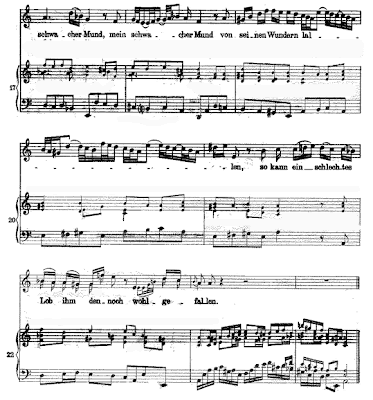 Melisma is the musical art of creating a run of many notes from one syllable. In the United States, singers in the African-American church popularized the vocal practice, which dates to Gregorian chants and Indian ragas. When Sam Cooke, Ray Charles and Aretha Franklin began singing popular music, they brought melisma to more mainstream audiences. Whether you love it or hate it, Whitney Houston's hit "I Will Always Love You," with its elongated "iiieeee-eyes" and "ooooeeeooos," is a prime example.
Melisma is the musical art of creating a run of many notes from one syllable. In the United States, singers in the African-American church popularized the vocal practice, which dates to Gregorian chants and Indian ragas. When Sam Cooke, Ray Charles and Aretha Franklin began singing popular music, they brought melisma to more mainstream audiences. Whether you love it or hate it, Whitney Houston's hit "I Will Always Love You," with its elongated "iiieeee-eyes" and "ooooeeeooos," is a prime example.American Idol contestants (and pop singers) sometimes abuse and overuse the technique in songs. At worst, they can fracture a word into a soulless slur of syllables that feels both alienating and groan-inducing. Plus you have no idea what word they're singing.
In music, melisma (commonly known as vocal runs or simply runs) is the technique of changing the note (pitch) of a syllable of text while it is being sung. Music sung in this style is referred to as melismatic, as opposed to syllabic, where each syllable of text is matched to a single note. Music of the ancient cultures used melismatic techniques to achieve a hypnotic trance in the listener, useful for early mystical initiation rites (Eleusinian Mysteries) and religious worship. This quality is still found in much Jewish, Hindu and Muslim religious music today. In western music, the term most commonly refers to Gregorian Chant, but may be used to describe music of any genre, including baroque singing and later gospel. Within Jewish liturgical tradition melisma is still commonly used in the chanting of Torah, readings from the Prophets, and in the body of the service itself. For an examination of the evolution of this tradition, see Idelsohn.
Melisma first appeared in written form in the system of Torah chanting developed by the Masoretes in the 7th or 8th century and then in some genres of Gregorian Chant, with the earliest written appearance around AD 900. where it was used in certain sections of the Mass. The gradual and the alleluia, in particular, were characteristically melismatic, for example, while the tract is not, and repetitive melodic patterns were deliberately avoided in the style. The Byzantine rite also used melismatic elements in their music, which developed roughly concurrently to the Gregorian chant.
The French Carol tune "Gloria" arranged by Edward Shippen Barnes in 1937, to which the hymn Angels We Have Heard On High is usually sung, contains one of the most melismatic sequences in popular Christian hymn music, on the "o" of the word "Gloria". Moreover, the choral tune "For Unto Us a Child is Born" from Handel's Messiah (Part I, No. 12) contains impressive examples of melisma.
Melisma is today commonly used in Middle Eastern popular music and Balkan pop-folk music. Melisma is also commonly featured in Western popular music, which has been heavily influenced by vocal techniques, by artists such as Joshua Wooten, Sam Cooke, Marvin Gaye, Mariah Carey, Whitney Houston, Patti LaBelle, Crystal Lewis, Luther Vandross, Stevie Wonder, India Arie, Brian McKnight, Wanya Morris, Tonéx, Kim Burrell, Celine Dion, Christina Aguilera, Beverley Knight, Beyoncé Knowles, Fantasia Barrino, Lauryn Hill, Britney Spears, JoJo, Chris Brown and Aretha Franklin. Melisma is also used in rock music, with notable proponents including Shakira, Van Morrison, Joni Mitchell, Gene Clark of The Byrds, Alecia Moore also known as P!NK, Thom Yorke from Radiohead, and Robert Plant from Led Zeppelin. The use of melisma is common in Indian classical and popular music; this is often reflected in Western adaptations of Indian music, such as in The Beatles' "Rain."
Look at some of the complicated melismatic writing here:


No comments:
Post a Comment